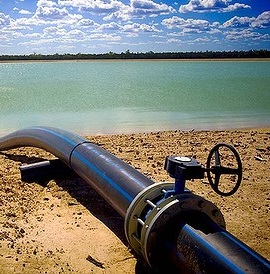Bodies clash on gas prices and protection
 The industry lobby for Australian manufacturers says high gas prices and a domestic shortage will lead to the loss of over 100,000 jobs.
The industry lobby for Australian manufacturers says high gas prices and a domestic shortage will lead to the loss of over 100,000 jobs.
Manufacturing Australia says that despite Australia producing more gas than ever, the willingness of other countries to pay more than three times its local value mean it is all flowing overseas.
Their basic argument contends that prices will increase in Australia, taxing households, and that large-scale manufacturers will be forced to close or move overseas.
The Federal Government has agreed to allow triple the amount of gas exports in recent years, but the industry bodies say it should be prioritised for Australian use first.
“We've got major companies that have survived the GFC that are now really under pressure to move their manufacturing offshore,” says Sue Morphet, chair of Manufacturing Australia.
“It could cost our GDP about $28 billion and 100,000 direct jobs plus all the indirect jobs for people who service the manufacturing sector,” Ms Morphet told the ABC.
The manufacturers have proposed a system similar to that in the US, where no gas is imported if it fails to meet a ‘national interest’ test.
But David Byers, the CEO of the Australian Petroleum Production and Exploration Association (APPEA), says that is not true.
“What we have from Manufacturing Australia is a protectionist proposal, which is trying to have gas supplied at lower prices, at the expense of the gas production industry,” Mr Byers told reporters.
“It's a form of protectionism that Australia moved away from back in the sixties and seventies.”
Mr Byers has denied allegations that gas producers are hording their supplies to sell for much higher prices overseas, creating a shortfall in Australia.
“There's not a shortfall at the moment because the projects haven't ramped up the to full production. They're still under construction.
“The market is working. What we have, however, from Manufacturing Australia, particularly, is essentially quite a protectionist proposal which is trying to have gas supplied at preferred prices, lower prices, cheap gas into one industry sector at the expense of the gas production industry.”
Head of major Melbourne-based manufacturer Dow, Mr Andrew Liveris has supported the US model, saying his factories in Australia are fast becoming unsustainable due to the gas price.
“On gas, the Department of Energy by rule of law has something called ‘the public interest’. It will not export gas unless it's in the public interest,” he said.
Gas exports from the US have kept down “to 10 per cent of available supply”, Liveris says.
“That doesn't affect domestic pricing. You can export a piece of it and you can keep a lot of it home to have the 20 times the multiplier occur.
“One dollar of gas creates $20 of value add. One job [in gas production] creates eight jobs [in manufacturing].
“Now that is a powerful domestic force. And these are high tech, high value jobs. I think Australia can have this.”
Manufacturers Australia chief Sue Morphet says other countries have similar policies.
“Canada, Israel, Qatar, the USA,” she said.
“They have all had a full review of what they can use their gas for domestically before they have allowed export.
“Israel holds back 60 per cent of their gas for domestic value-add. Canada does exactly the same thing, USA have only just allowed export after they've allowed their domestic market to fully flourish.”
Western Australia s the only state with protections in place so far, adopting a policy to reserve 15 per cent of its gas for use in WA only.
Gas producers say there are piles of money to be made.
“We have $200 billion of investments underway now, so this is destined to be a huge boost to Australia's GDP over the next 20 to 25 years,” the Australian Petroleum Production and Exploration Association’s CEO said.
“It's a big opportunity for Australia.”







 Print
Print